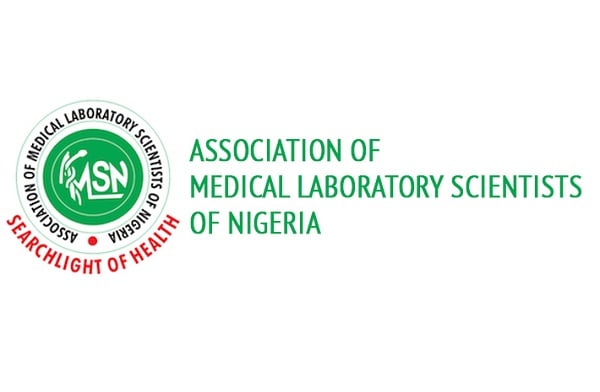The National President of the Association of Medical Laboratory Scientists of Nigeria (AMLSN), Dr Casmir Ifeanyi, has called on all levels of government to implement policies that foster a healthy environment to enhance public health.
Speaking at the 19th Annual Public Health Lecture held at the National Institute for Policy and Strategic Studies (NIPSS), Kuru, Jos, Dr Ifeanyi, the 15th president of the association, highlighted the significant role environmental degradation plays in the deteriorating state of public health in Nigeria.
He noted that environmental damage resulting from oil exploration, mining activities, and the unregulated dumping of waste into rivers has had a severe negative impact on the health of citizens.
Dr Ifeanyi declared: “Plateau State, along with neighbouring states such as Nasarawa, Niger, and Zamfara, has witnessed the twin scourges of environmental degradation and pollution, particularly from illegal mining activities. What should have been a blessing has become a curse for many communities. Contaminated water, poisoned soils, respiratory diseases, cancer clusters, and childhood lead poisoning are all painful consequences. This must change.”
At the public lecture, entitled “Advancing Public Health for Sustainable and Healthy Communities,” the national president stressed: “Environmental health is foundational to public health.
“When our air is unsafe to breathe, our water unsafe to drink, and our lands unsafe to farm, the very fabric of community health is compromised. This is not just an environmental crisis; it is a public health emergency.
ALSO READ:https://tribuneonlineng.com/im-a-northerner-nnpc-boss-ojulari/
“In the Niger Delta, the situation is no less tragic. Oil exploration has devastated ecosystems, poisoned rivers, and filled the air with hydrocarbon fumes. Once lush and bountiful lands have become graveyards of biodiversity and silent incubators of chronic illnesses.
“Contaminants from mining activities introduce heavy metals such as lead, mercury, and arsenic into the human food chain, causing neurological, renal, and reproductive health disorders.
“Airborne particulate matter from gas flaring and open burning causes chronic obstructive pulmonary disease (COPD), cardiovascular ailments, and cancers. Polluted water bodies become breeding grounds for vector-borne diseases, posing massive challenges to maternal and child health.”
Dr Ifeanyi urged governments at all levels to review and strictly enforce environmental protection laws, curtail illegal mining and unsanctioned oil exploration through surveillance and prosecution, and to empower and integrate medical laboratory scientists into national emergency response teams during environmental disasters.
In her keynote address, the Deputy Governor of Plateau State, Josephine Piyo, emphasised that tackling these challenges requires global cooperation to mitigate their impact and safeguard the environment for future generations.
The Deputy Governor called on all communities to adopt air quality standards and guidelines as set by the World Health Organization (WHO) and the Environmental Protection Agency (EPA) as tools for managing air quality.
She further advocated for sustainable housing and infrastructure to reduce environmental stress on vulnerable communities. “For example, flood-resistant homes, clean energy solutions, and eco-friendly building materials can create safer living conditions.”
Other control measures she recommended include the adoption of community health programmes to prevent disease spread, improve healthcare access, and promote healthy behaviours among local populations — all of which can yield positive economic and social benefits.






